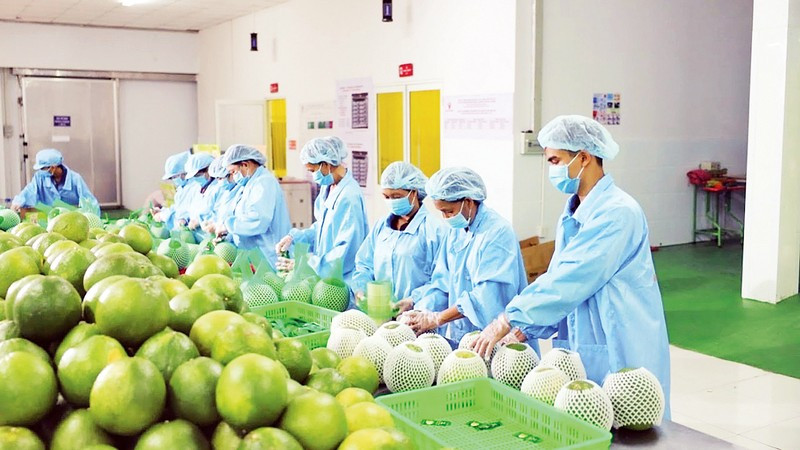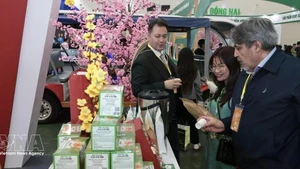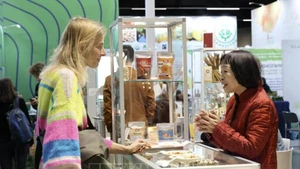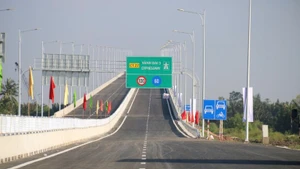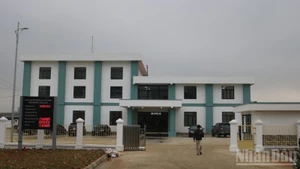The sector’s trade surplus during the six-month span surged 62.4% against the same time last year to around 8.28 billion USD.
Seven products and groups of products posting an export turnover of over 1 billion USD each were coffee, rubber, rice, fruits and vegetables, cashew nuts, shrimp, wood and wooden products.
Specifically, the country exported 4.68 million tonnes of rice worth 2.98 billion USD, up 10.4% and 32%, respectively, and shipped 350,000 tonnes of cashew nuts abroad for 1.92 billion USD, an increase of 24.9% and 17.4%, respectively.
Coffee exports, despite seeing a drop of 10.5% in volume to 902,000 tonnes, saw a rise of 34.6% in value to 3.22 billion USD thanks to rising export prices.
During the period, most of Vietnamese agro-forestry-aquatic exports were destined to Asia (13.9 billion USD), America (6.6 billion USD), Europe (3.7 billion USD), Africa (565 million USD), and Oceania (405 million USD), with the US, China and Japan being the largest purchasers.
Along with export, the country’s agro-forestry-aquatic product production was the key for the sector’s growth, and a beacon of the economy.
Statistics from the General Statistics Office showed that the sector has enjoyed both bumper harvests and soaring prices, with the price index of agricultural products in the first six months of the year rising 10.29% against the same time in 2023.
Given the robust export growth, Deputy Minister of Agriculture and Rural Development Phung Duc Tien said that the export revenue for the whole year could hit 54-55 billion USD.
The Ministry of Industry and Trade said that it will work to bolster agricultural product exports to such key markets as China, the US, Japan and the EU, and open doors for them to enter potential ones like the Halal market and Middle East, helping to maintain export momentum in the remaining months of 2024.
As supply chain disruption due to conflicts, geopolitical tension and trade wars among powers has ratcheted up the global demand for agricultural products, Vietnam has boosted exports in a sustainable manner while ensuring national food security, according to Minister Nguyen Hong Dien.
The country will continue the negotiations, signing and upgrade of free trade agreements (FTA) with potential partners, helping enterprises to diversify their markets, products and supply chains to increase shipments, he said.
Besides, the ministry will join hands with ministries, sectors, localities and associations to support firms to capitalise on the signed pacts, particularly their tax incentives, and improve their production capacity as well as ability to settle trade remedies-related lawsuits and arising international trade disputes.
